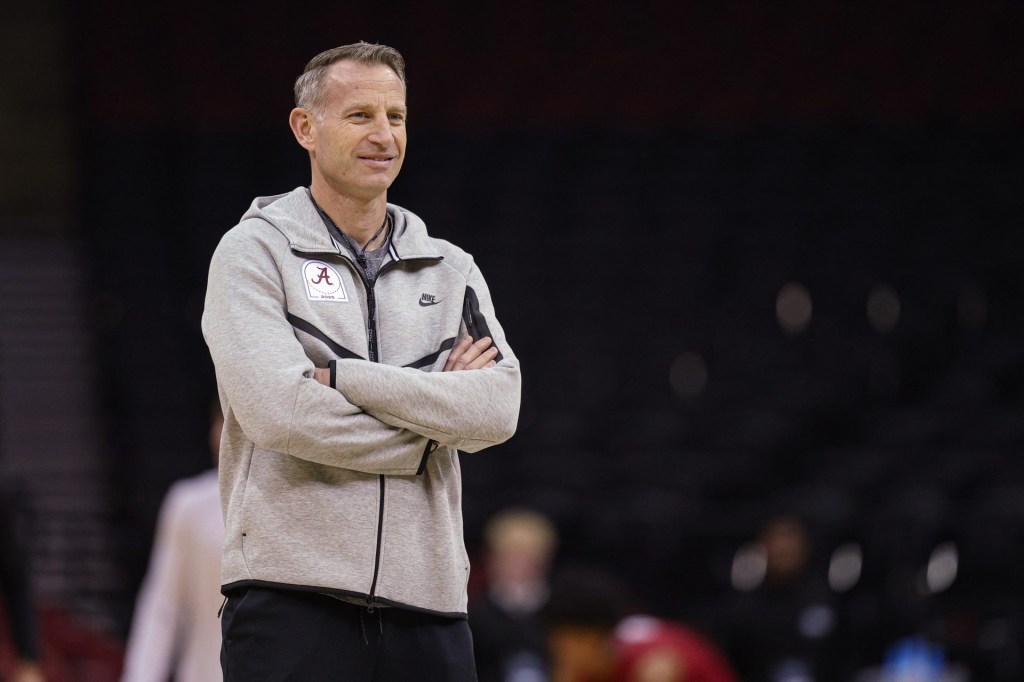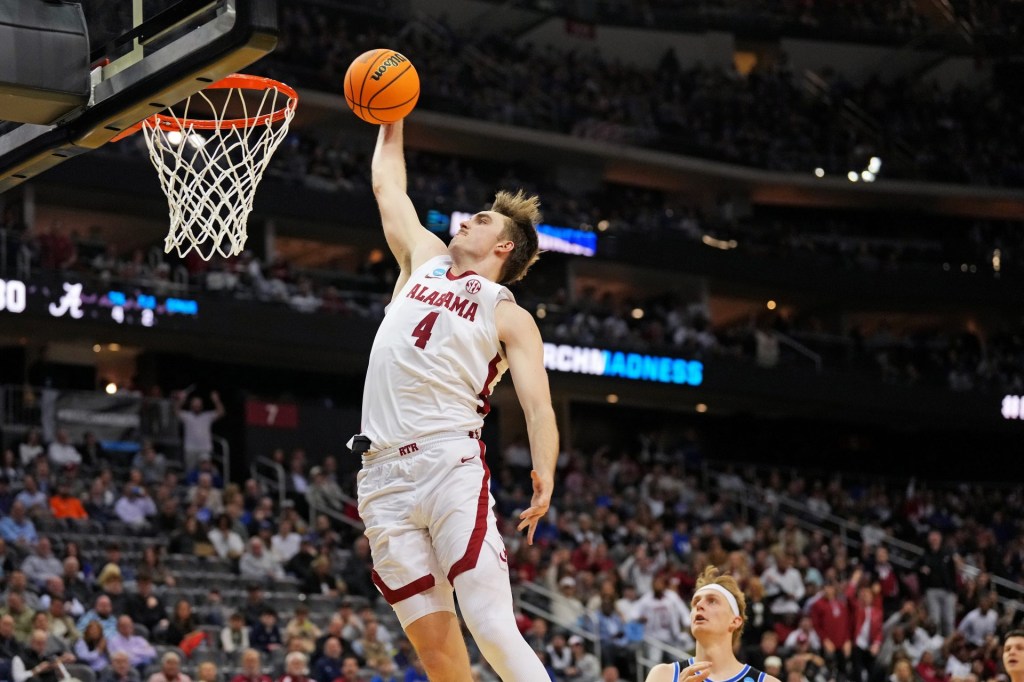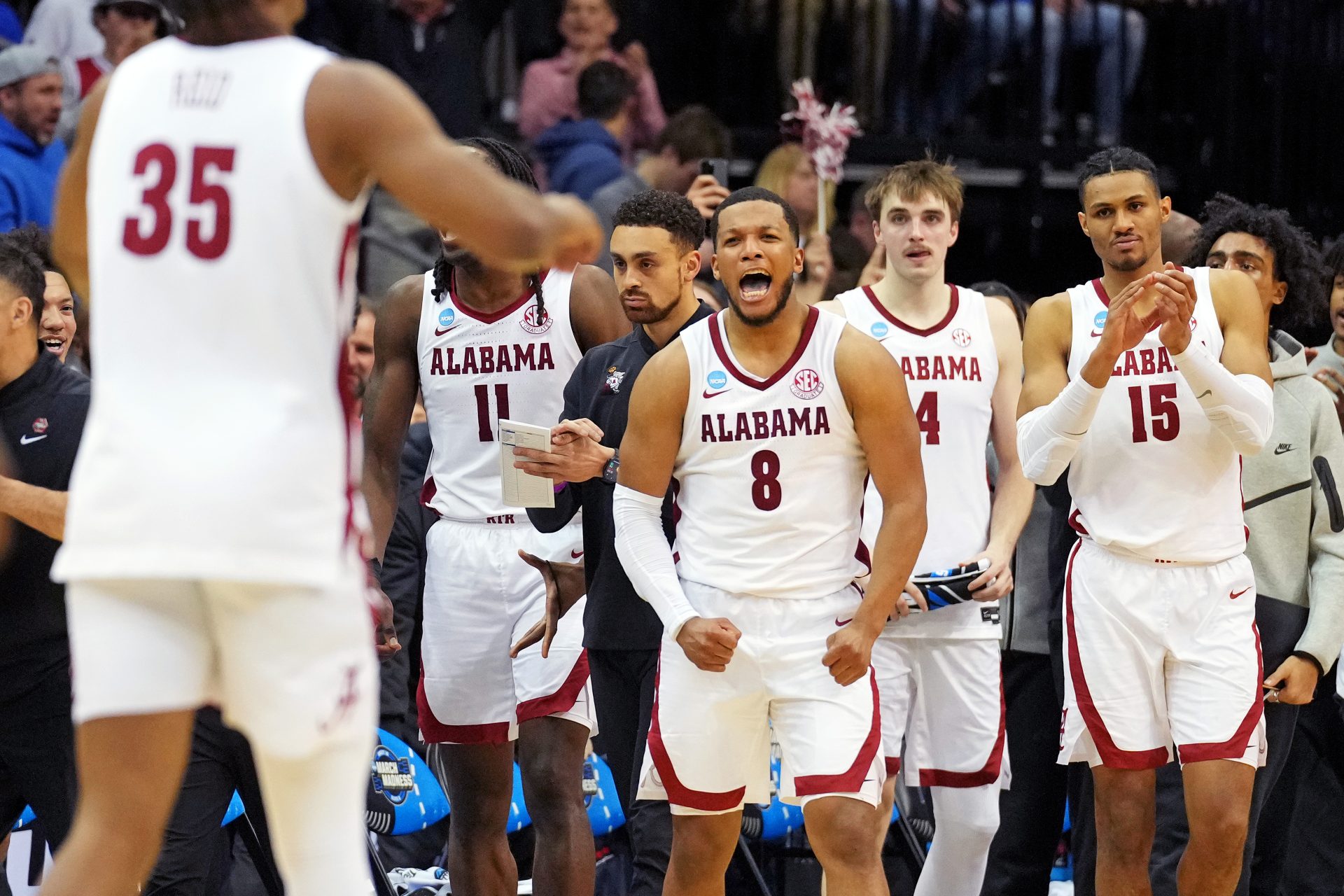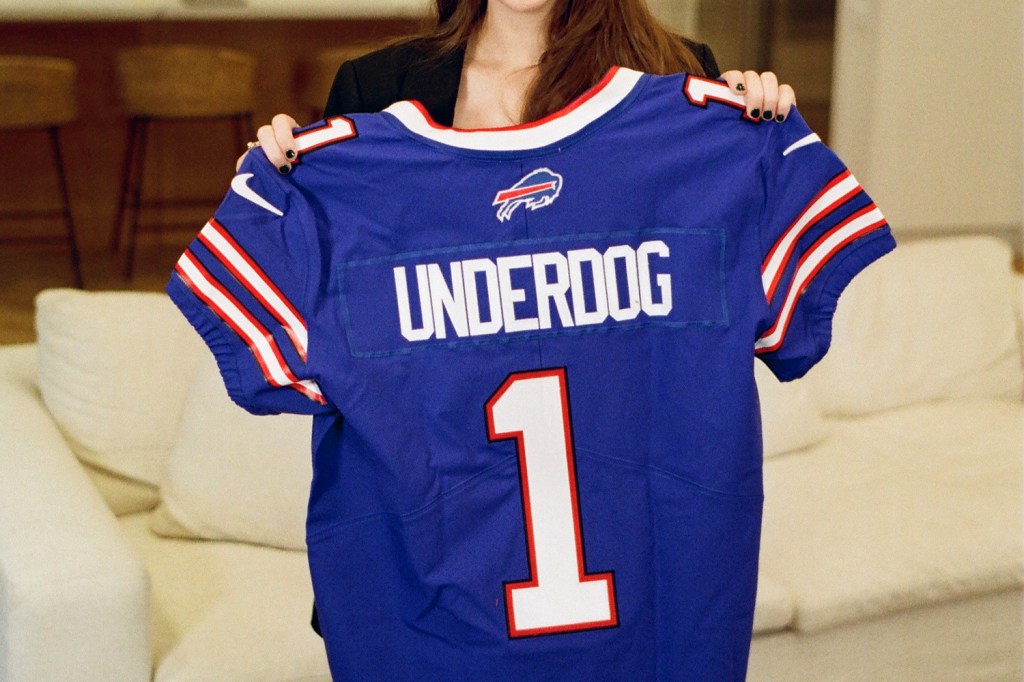NEWARK, N.J. — On Thursday night, Alabama won its Sweet 16 matchup against BYU in a way that can only be described as decisive. The Crimson Tide put up 113 points and made 25 three-pointers, taking down a men’s tournament record for deep balls that has stood since 1990.
With most of the national spotlight on No. 1 seeds Auburn and Florida, the school hasn’t garnered the most attention in the SEC, let alone across the sport. But across a five-season stretch, Alabama has asserted itself as a March Madness mainstay, and more recently as a legitimate title contender. Now, the Tide are back for their second consecutive Elite Eight—and in the hunt for the program’s first title-game appearance after getting knocked out by UConn in last year’s Final Four.
It’s not that Alabama is an underdog. The school boasts one of the richest athletic departments in the nation (the most recent numbers put its annual athletic department revenue at more than $214 million, third in the country behind Ohio State and Texas), with a perennial powerhouse football program. But it has never been considered a basketball blueblood, and even still doesn’t spend as much as schools such as Kentucky.
“I think the Alabama fans like us making deep runs in the NCAA Tournament,” head coach Nate Oats told reporters after the game Thursday night. “At least I do.”
In 2019, Alabama significantly upped its investment. The team took a chance on Oats, the then-Buffalo head coach, who delivered three NCAA tournament berths in four years and the team’s first-ever win in the Big Dance. Oats signed a five-year, $2.45 million contract—similar to previous coach Avery Johnson’s terms.
“[Athletic director] Greg Byrne’s bold hire of Nate Oats, who at the time was only a few years removed from being a high school coach in suburban Detroit, has been hugely consequential for Alabama basketball,” SEC associate men’s basketball commissioner Garth Glissman tells Front Office Sports. “And the overall trajectory of SEC basketball.”
The team went 16–15 in 2019–2020, and Oats said the COVID cancellation “saved us,” suggesting he didn’t think the team would’ve made the NCAA tournament in his first year.

He reflected on those early years after beating BYU in Newark Thursday night: “When I got the job, we didn’t have the transfer portal, eligibility immediately, NIL, so it was a little harder to turn it around immediately like you can now.” He referenced Jahvon Quinerly, who had to redshirt for Oats’s first season, as the NCAA hadn’t changed its rules to allow players to transfer without consequence and had denied his waiver request. “That was like the last guy the NCAA wouldn’t let play,” he joked.
But the program started winning quickly—around the same time the NCAA’s rules began to change: The NIL (name, image, and likeness) era began in July 2021, and NIL collectives, or groups of boosters and donors who pool financial resources to pay players, began to form. Two months later, the NCAA created the transfer portal, allowing players to move schools one time without having to redshirt. And in 2023, a federal court forced the NCAA to let players transfer as many times as they wanted. (Not even controversy over allowing a player linked to a murder investigation to play in March Madness slowed down the team in the long run.)
Glissman says Oats’s “steadfast belief in his system”—which he says includes focusing on three-point shots and a deep investment in analytics—has been a key component. “Even our first year, we played this way,” Oats said. “We just didn’t have as much talent to do it.”
As Oats noted, the current system of “unrestricted free agency” has been good to the Crimson Tide.
It’s unclear how much Alabama’s collectives spend on men’s basketball—but a source previously told FOS that this year, power conference programs needed to shell out at least $3 million to $4 million to remain competitive. And they don’t put the most money in the program from an athletic department standpoint: Although they’ve upped their investment, their basketball spending doesn’t quite line up with their overall revenue ranking. Despite regularly ranking in the top five in the country in revenue, in the fiscal year for 2023, they reportedly only spent $12.8 million for the men’s program—ninth in the SEC alone. (Oats did sign a lucrative extension last year, increasing his pay to $5 million—now the 10th-highest in the nation.)
Regardless, the team has been able to put together championship-caliber rosters.

“We’ve got some of the best recruiters in the country,” Oats said, calling out assistant coach Preston Murphy by name (who Oats has previously said handles all the NIL-related conversations with players).
The team’s current makeup mirrors the trend in college sports that top-ranked programs rely heavily on transfers. Mark Sears, who joined the program in 2022, is one of the longer-tenured players. He was integral to the team’s 2024 Final Four run. In the offseason, the program signed five transfers along with four high school recruits. Three of those transfers started Thursday night, and another, Aden Holloway, scored 23 points off the bench.
But even beyond Saturday night, many questions remain about whether Oats and the Crimson Tide will find success in the future. The House v. NCAA settlement, which is set for a final approval hearing on April 7, would commence an era of revenue-sharing. Each D-I school would be able to share a pool of up to $20.5 million with players next year—creating a dilemma for programs like Alabama, which will likely have to relinquish the majority of that revenue to football, while basketball-focused schools like those in the Big East can offer recruits a bigger percentage of the pay. (NIL collective dollars could bridge the gap, but those deals will face more scrutiny going forward.)
Glissman promises the conference will have the team’s back. “Whatever the circumstances, the SEC will continue to compete at the highest levels in men’s basketball,” he says. “Our strong belief is the SEC’s best days in men’s basketball are yet to come.”
But for now, Alabama has to focus on its Saturday night matchup: a much more traditional men’s basketball blueblood in Duke, led by star guard Cooper Flagg—who dropped 30 points in a highly physical Sweet 16 game against Arizona and clearly hasn’t been hindered at all by his late-season ankle injury.
“Now we’ve been able to get the talent,” Oats said. “And hopefully we get to continue to get the talent, we keep the resources where we need to, and keep making these runs.”







![[Subscription Customers Only] Jun 15, 2025; Seattle, Washington, USA; Botafogo owner John Textor inside the stadium before the match during a group stage match of the 2025 FIFA Club World Cup at Lumen Field.](https://frontofficesports.com/wp-content/uploads/2026/02/USATSI_26465842_168416386_lowres-scaled.jpg?quality=100&w=1024)
![[Subscription Customers Only] Jul 13, 2025; East Rutherford, New Jersey, USA; Chelsea FC midfielder Cole Palmer (10) celebrates winning the final of the 2025 FIFA Club World Cup at MetLife Stadium](https://frontofficesports.com/wp-content/uploads/2026/02/USATSI_26636703-scaled-e1770932227605.jpg?quality=100&w=1024)









